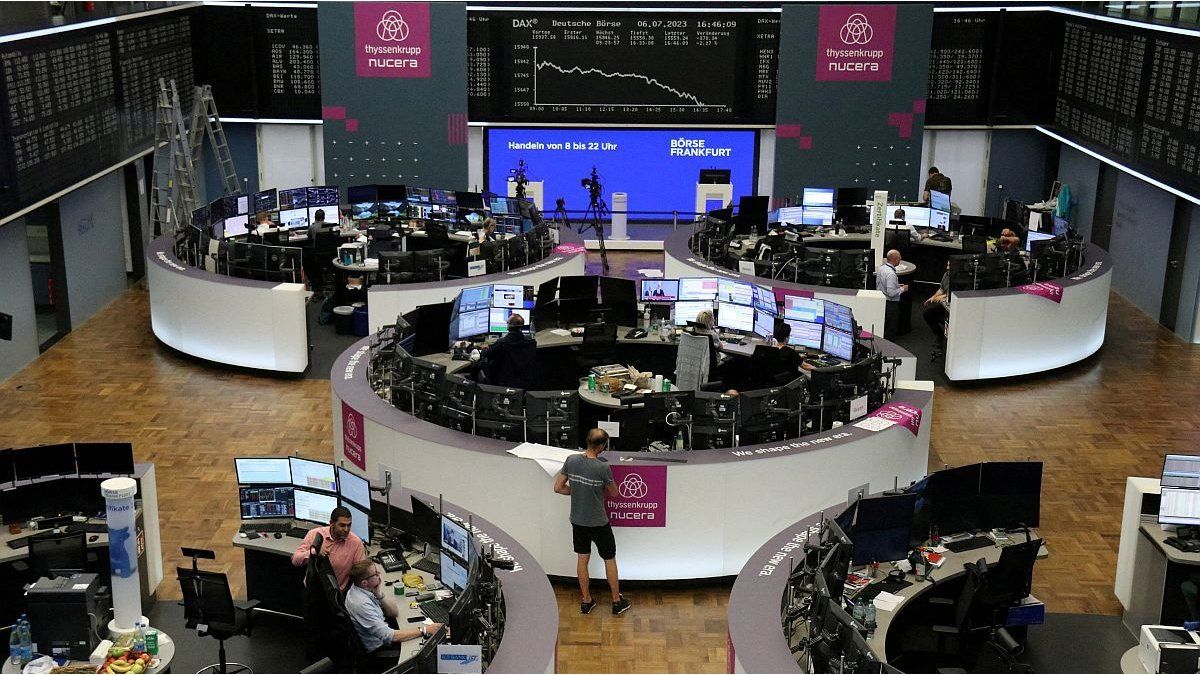The economy of the Euro zone grew faster than expected in the second quarter of 2024, according to official data published on Tuesday, confirming the economic rebound of the countries that share the common currency since January, despite Germany’s weak performance.
Eurozone GDP grew by 0.3% between April and June compared with the previous three months, the European statistics institute Eurostat announced on Tuesday.
Analysts interviewed by Bloomberg and Factset were expecting a slight slowdown in growth, of 0.2%, in that period.
In the first quarter, eurozone GDP had already grown by 0.3%, emerging from the stagnation of the second half of the previous year (0%), according to Eurostat figures.
But the differences between countries are very pronounced, which could cause a headache for the European Central Bank (ECB), which must define a monetary policy adapted to the 20 countries that share the common currency.
So, Among the major economies of the Old Continent, Germany stands out negatively and holds back its partners. Its GDP fell 0.1% in the second quarter. For two years, Germany’s export industry, the backbone of its economic model, is struggling due to high energy costs, overcrowding, weak domestic demand and difficulties in international trade.
At the beginning of the year, experts predicted that European economic growth would accelerate in the second half of the year, but the latest data has dashed their expectations.
In particular, the PMI index, published last week by S&P Global, reports a “near stagnation” in private sector activity in July.
“The eurozone economy is rather like the quality of the water in the Seine: there are days when it may look OK, but overall it is mediocre enough to cause us to be continually worried,” said Bert Colijn of ING bank.
Overall, Europe’s performance remains well below that of the United States and China, which posted growth of 0.7% in the second quarter.
For 2024, the International Monetary Fund (IMF) forecast on 26 July that GDP growth would be 0.9% in the eurozone, 2.6% in the United States and 5% in China.
In contrast to Germany, France’s performance (+0.3%), on average in Europe, was slightly better than Italy’s (+0.2%), and Spain recorded one of the highest growth rates (+0.8%).
France is currently hosting the Olympic Games in Paris, which Capital Economics says could provide a “small boost” to the eurozone economy in the third quarter of 2024.
The growth of Spain, one of the best-performing countries in the region, was boosted by buoyant exports and solid household consumption. In France, production grew thanks to international trade and a recovery in business investment.
Italy and Portugal had a modest growth of 0.2% and 0.1% respectively.
In the EU as a whole, growth also maintained its 0.3% pace reached at the beginning of the year in the second quarter.
On Wednesday, Eurostat is expected to publish the inflation figure for July in the euro zone. In June, it fell slightly to 2.5% year-on-year.
Experts are also concerned about labour shortages, with the unemployment rate at an all-time low of 6.4% of the working population in the eurozone.
Source: Ambito




